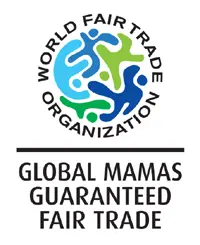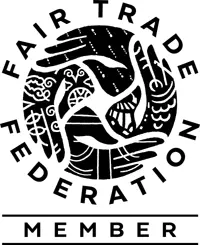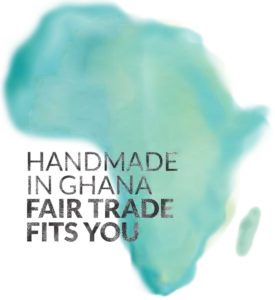October is Fair Trade Month. “Fair trade” means that an equitable partnership exists between producers of goods in developing countries and retailers in developed countries. The fair trade approach supports a variety of social business practices that advocate for higher standards in regard to producers’ pay, work atmosphere, and environmental protection, among others. Fair trade partnerships work to provide otherwise marginalized artisans and farmers with a living wage. My name is Tekia Thompson and as an employee of Global Mamas, I’m so proud that we uphold these values every day. During my recent trip to Ghana, I had the opportunity to see the importance of what we do firsthand during my batik workshop and I wanted to share my experience with you.
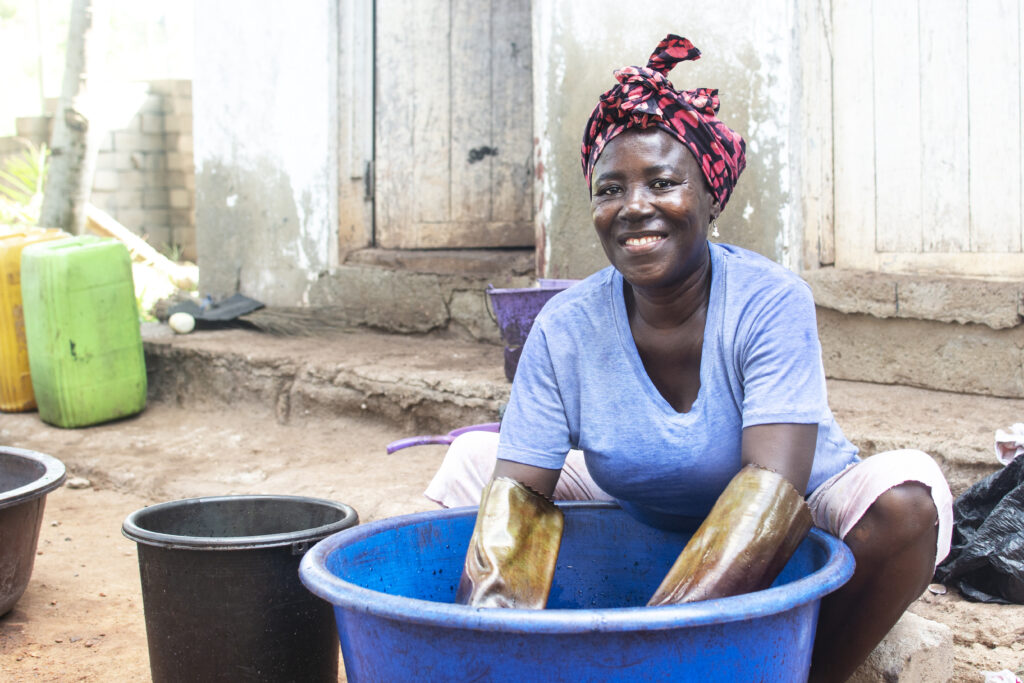
This beautiful, precious woman, and Global Mama, is Martha. She is small but mighty and full of joy. Up until today, the first photo you see was the only reference I had of Martha. But one morning I was whisked away through the tiny town of Elmina to her batiking space for a one-on-one workshop. Just seeing her brought me so much happiness! Her smile is full of light and joy. “Hello, welcome,” she greeted. With Martha and her team, I got to experience why it’s important to keep supporting this traditional batik craft, why it’s vital to uphold fair trade values, and why we need to re-examine who truly makes our clothes.
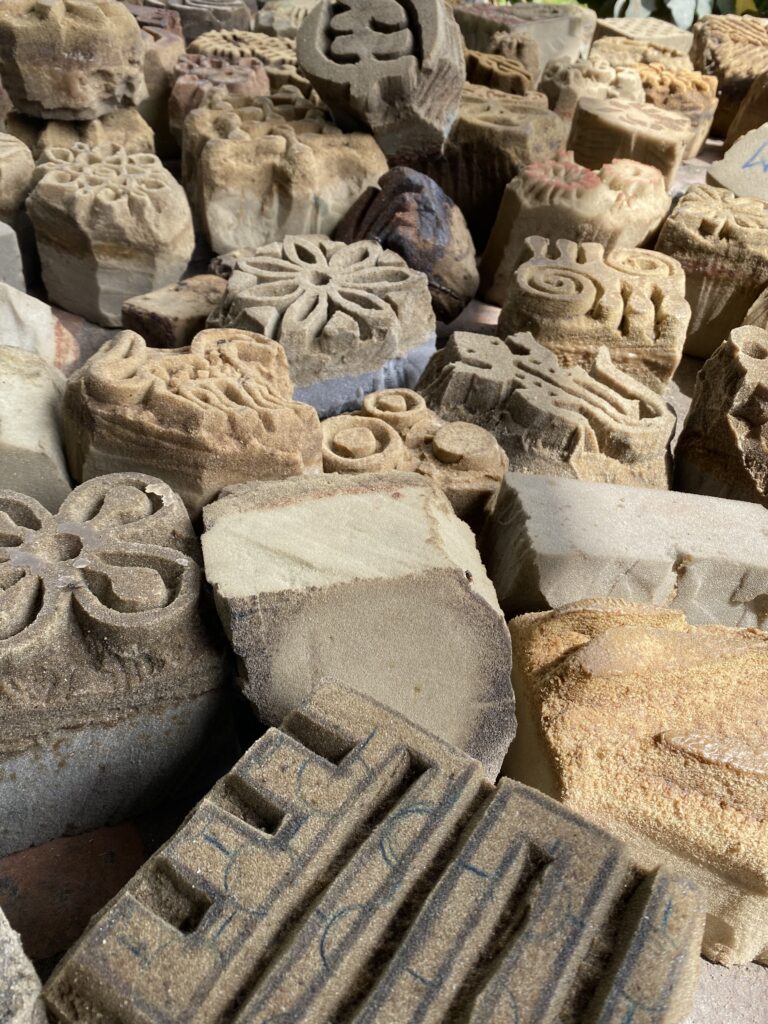

We started with a brief lesson on batik, the importance of the fabric, and the dyes used. Then she cut two yards of 100% organic cotton fabric and allowed me to choose my stamp. Side note, these stamps are hand carved. Once we were ready to begin, she took my hand in hers so I could feel the process. “Abena,” she said. “Don’t press, don’t squeeze, just lightly rock, like this. Here feel my hand,” she instructed while smiling. *Abena is my Ghanaian day name, by the way.
Let’s be honest. Batiking is hard. It requires standing, reaching, bending, squatting, turning, and using repetitive stamping motions, all in an effort to complete beautiful pieces for the fair trade fashion-lover in you. But it is so often that beauty comes out of hardships and our batik fabrics are beautiful. What Martha and her workers do for hours every day, I did for a total of two. I was sweating 20 minutes into the process. Partly because of the heat and partly because I didn’t want to mess up. She stood beside me and just smiled that brilliant smile. “Keep going, you are doing well,” she said. Isn’t that just like a mama to offer me encouragement when I’m feeling completely out of my element?
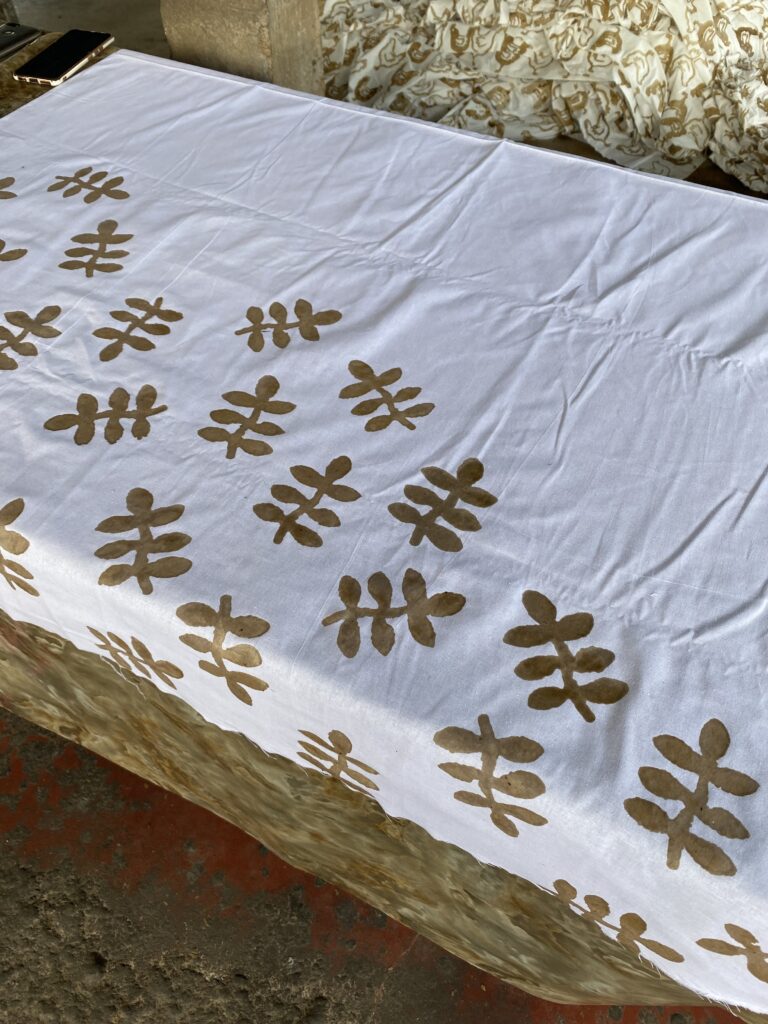


While I continued to stamp, her worker monitored the hot wax, Yes, I said hot wax. She wouldn’t let me near it. Much like a Mama, I felt she knew me all too well. I can be quite clumsy at times. “Abena, what color would you like?” she asked. I told her I would love to have the fabric in deep blue. Before I could get the words out of my mouth, she quickly set to work, with her glove-protected hands and face mask. She was creating the color that my cloth would be dyed in. Let that sink in. When we speak of handmade, we truly mean that. The Mamas leave nothing untouched.
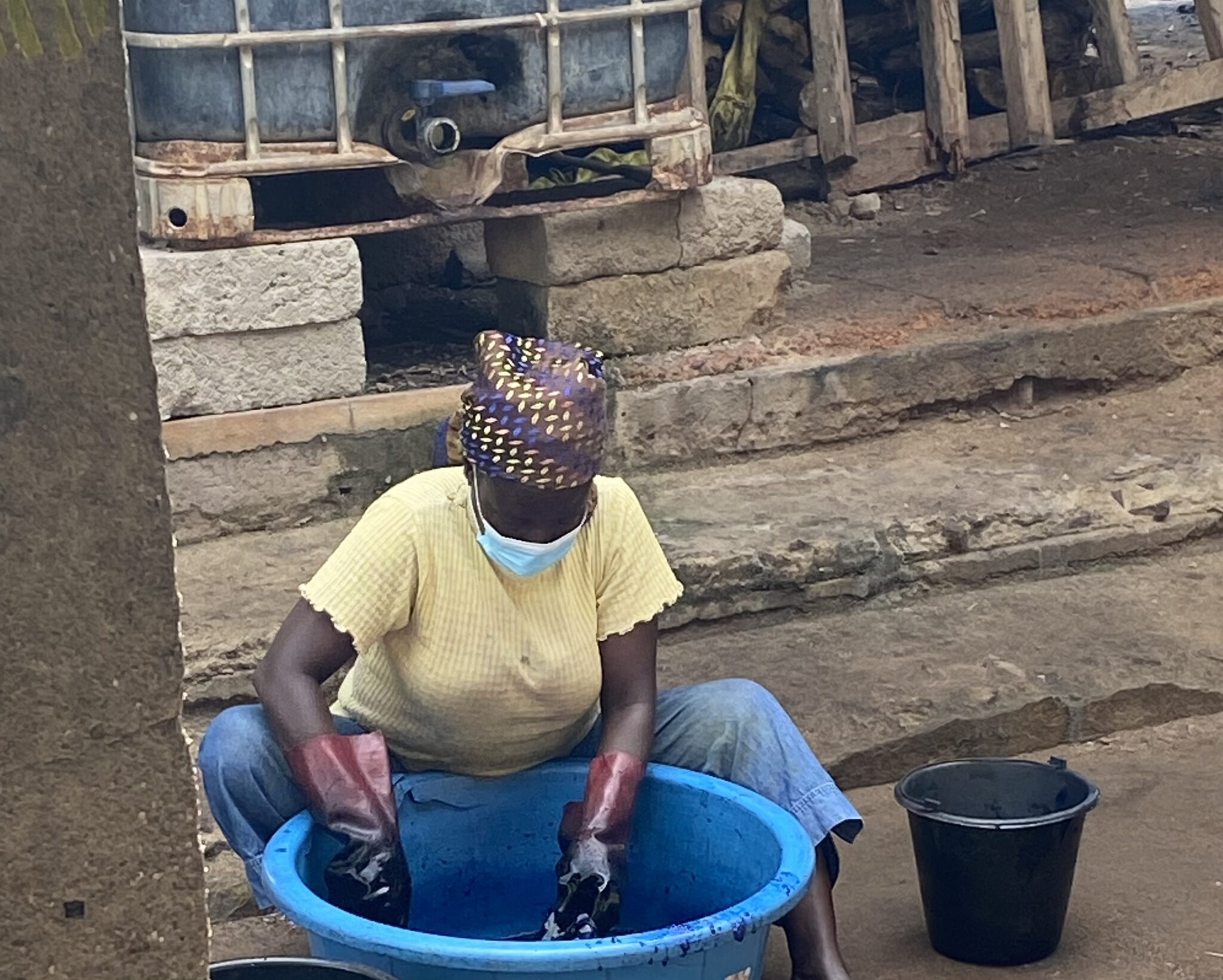

After completing the stamping process I got some additional help as I had several spots that needed correcting with a smaller sponge. I wasn’t shocked. Then, we moved the dyed fabric to set in the sun before removing the wax with boiling water. Again, she wouldn’t let me touch it. One of her workers took over. Using just two sticks and some serious muscles, she removed all the wax, gave it a final rinse, and placed it on the line to dry in the direct sun. I stood in the sun with the breeze to watch it dry. I couldn’t believe it! I, Tekia (Abena) Thompson, created her first batik fabric. What an honor to be taught by one of the best. Finally, Martha came to inspect. “Yes, you have done well!” What a relief. This was such a huge compliment from such an amazing batiker.
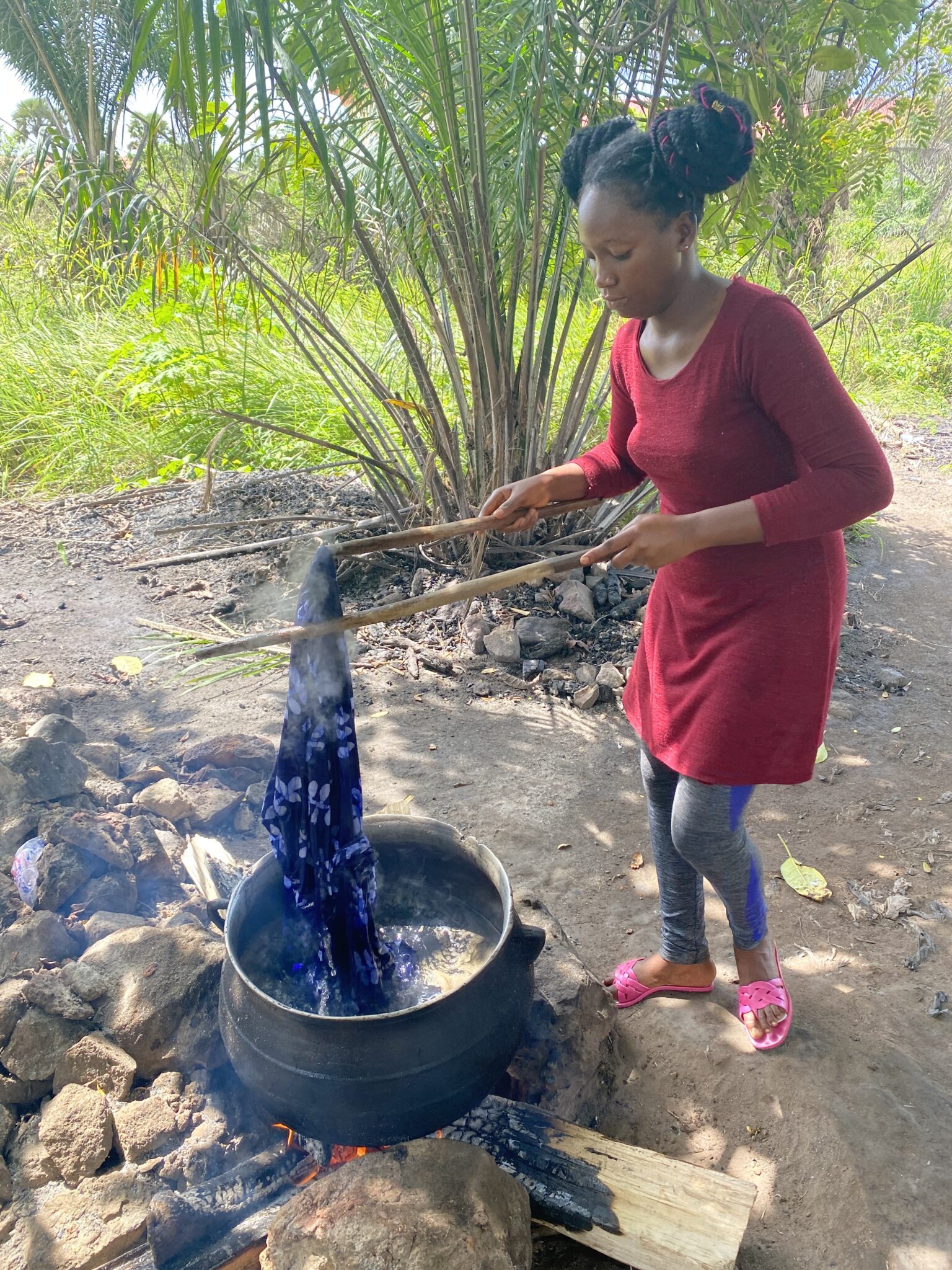


Are you wondering what became of such a glorious piece? Thanks to one of the Founding Mamas and talented seamstress Alice, my fabric became a gathered skirt and headband. It was the perfect outfit to wear for celebrating my birthday.
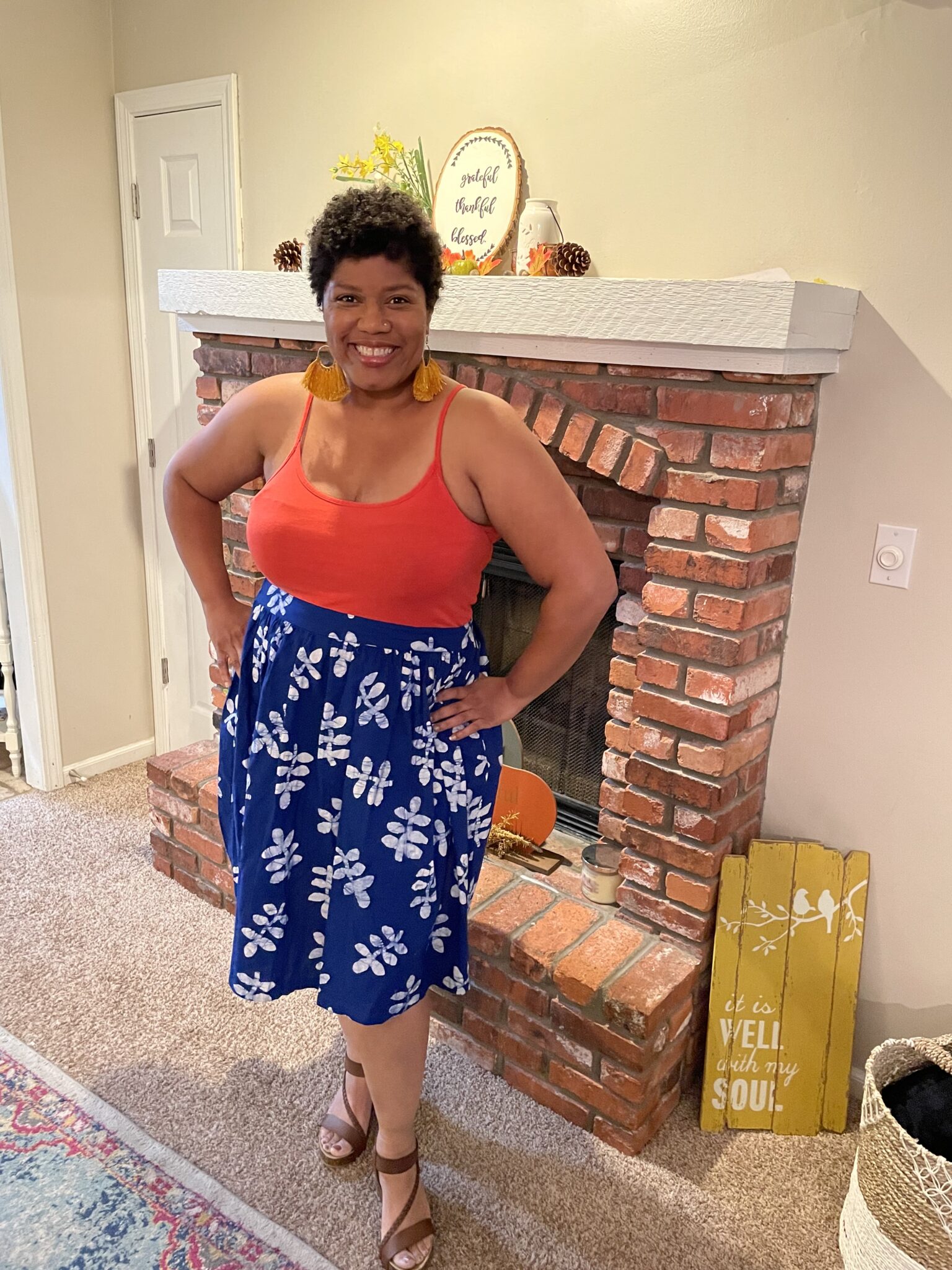

As a fair trade organization, we are committed to upholding traditional skills like batik while simultaneously creating space for women to succeed as entrepreneurs and achieve financial independence. Next year Global Mamas celebrates 20 years! Through economic downturn and multiple pandemics, the Mamas are STILL HERE! They are still batiking, still sewing, still weaving, still stringing beads, still creating beautiful pieces of apparel, jewelry, and home décor by hand so that we may bring a bit of the beauty of authentic West African tradition to our lives. Whether you are an employee, partner producer, customer, volunteer, intern, or generous donor, I hope that you will join me in celebrating and supporting this work. Share the Global Mamas story by hosting a prosperity party, volunteer your time in Ghana, shop Global Mamas in Ghana or in the US, visit us in Ghana for a fair trade tour, or donate. Know that however you choose to support the Mamas, you are doing so as part of a global community committed to creating lasting positive change. And to that, I extend my sincerest thanks to you, Medaase, Pa.


